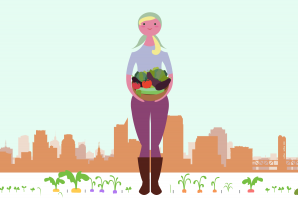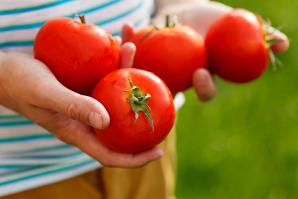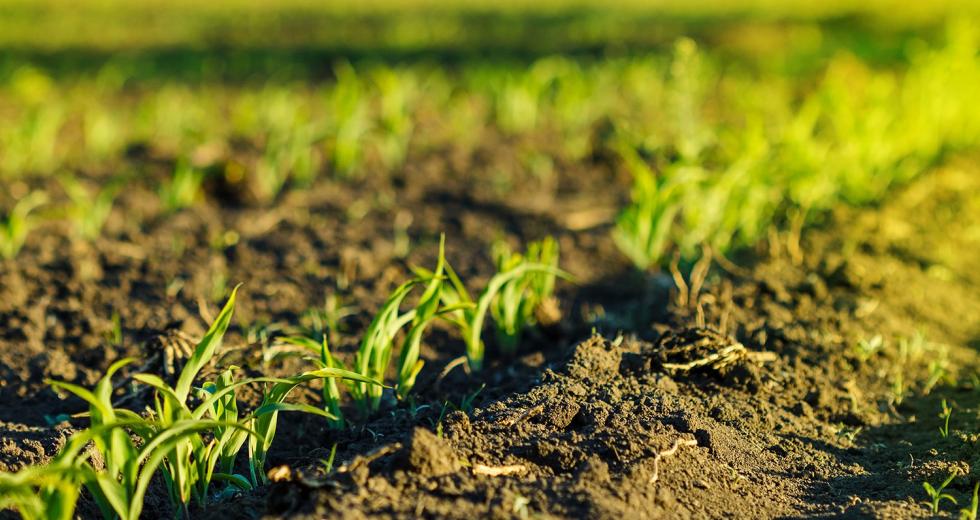Daniel Morash doesn’t like to see spoiled food go to waste. In 2012, Morash and his brother, Dave, spent millions to launch California Safe Soil with one goal in mind: convert leftover organic material from supermarkets into a nutrient-rich soil amendment farmers could use to grow crops.
“A typical supermarket throws away 600 pounds of food a day,” says Morash, the company’s CEO. “It’s no longer edible, but this organic material has a tremendous amount of nutrient value. The same stuff that keeps you and me alive can be used to stimulate organic life in the soil like bacteria, fungi, worms and insects.”
In December, Cal Safe Soil was chosen as one of 10 finalists for the Thrive Accelerator, a prestigious program from Silicon Valley Group and Forbes Magazine, designed to incentivize “smart” farming. The competition runs from Jan. 7 to March 4 in Salinas, culminating with a demo day. Morash looks forward to showing off his company’s unique recycling system.
To turn food waste into fertile soil, Cal Safe Soil brings the leftover organic material to its West Sacramento plant before it rots. That waste gets heated, ground and pumped with enzymes to be broken down into its constituent elements. This process converts the old food into a homogeneous liquid fertilizer, pasteurized for safety. Farmers can use their own equipment to distribute the fertilizer through drip lines.
Morash calls his system the “fork-to-farm” side of the farm-to-fork movement. He says the recycler will be helpful to supermarkets required to set up recycling services for organic waste starting next April, per Cal AB 1826. The non-chemical liquid fertilizer also has benefits for the environment, according to Edwin Lewis, associate dean for the College of Agricultural and Environmental Sciences at UC Davis.
Lewis has been working with Cal Safe Soil for the past three years, doing greenhouse trials, data analysis and regulatory tests. He says many growers use traditional fertilizers because they’re cheap. But they contain high levels of nitrate, which contaminates the soil and water and can also lead to pest population problems.
“California is very concerned with contamination,” Lewis says. “Having an alternative that’s not very high in nitrate can be a really positive thing.”
With his background in investment banking, energy and infrastructure, Morash was able to bring aboard 25 partners mostly through personal contacts. He also presented to various angel networks, and has had three rounds of investor opportunities so far.
Cal Safe Soil has been generating sales since 2013. This year, Morash has a goal of reaching $2 million in sales, a cash flow break-even point for the company. He’s currently in talks with retailers to sell his system as a home, lawn and garden product. But Morash understands that growth takes time.
“It’s always going to take you longer and require more money than you think,” he says. “You really have to live it and be willing to make big sacrifices.”
For Morash, one of those sacrifices includes commuting to California from his home in New Jersey. Rather than renting an apartment here on the West Coast, he chooses to live at Comfort Suites in Dixon to save money.
Recommended For You

The Battle for Urban Ag
Community organizers fight for rights to sell the food you grow
In a county where 218,510 residents are food insecure (meaning they don’t know where their next meal will come from), and where a local food bank will distribute groceries to 40,000 individuals each month, food activists are continually innovating ways to break the cycle of poverty—for good. The solution is actually under our feet: the soil.

Startup of the Month: Pondera Solutions
Local entrepreneur uses Google Analytics to help state agencies detect fraud
In 2011, Jon Coss was on the hunt for funding. He had an idea for a system that could leverage Google Analytics to detect and prevent fraud and abuse in government programs. But this infrastructure-as-a-service model was new back then, untested and hard to explain to venture capitalists.

Risky Bee-siness
To protect honey bees, California Almond Board cautions against tank mixing
Last summer, honey bee hives pollinating orchards in SoCal, from Fresno to Bakersfield, took a hard hit. Apiculturist Eric Mussen points to tank mixing formulas as the culprit behind what he estimates at over 80,0000 colonies lost. According to Mussen, chemicals often not thought to be harmful to bees can turn deadly when mixed.

Touchscreen to Table
West Sacramento to address food access with Code for America
Code for America works with cities around the country, using open-source software to improve the scalability and reach of government services. Starting next year, Code for America fellows will work with the Sacramento Area Council of Governments and the city of West Sacramento using technology to tackle issues related to health care and food access in the city.



